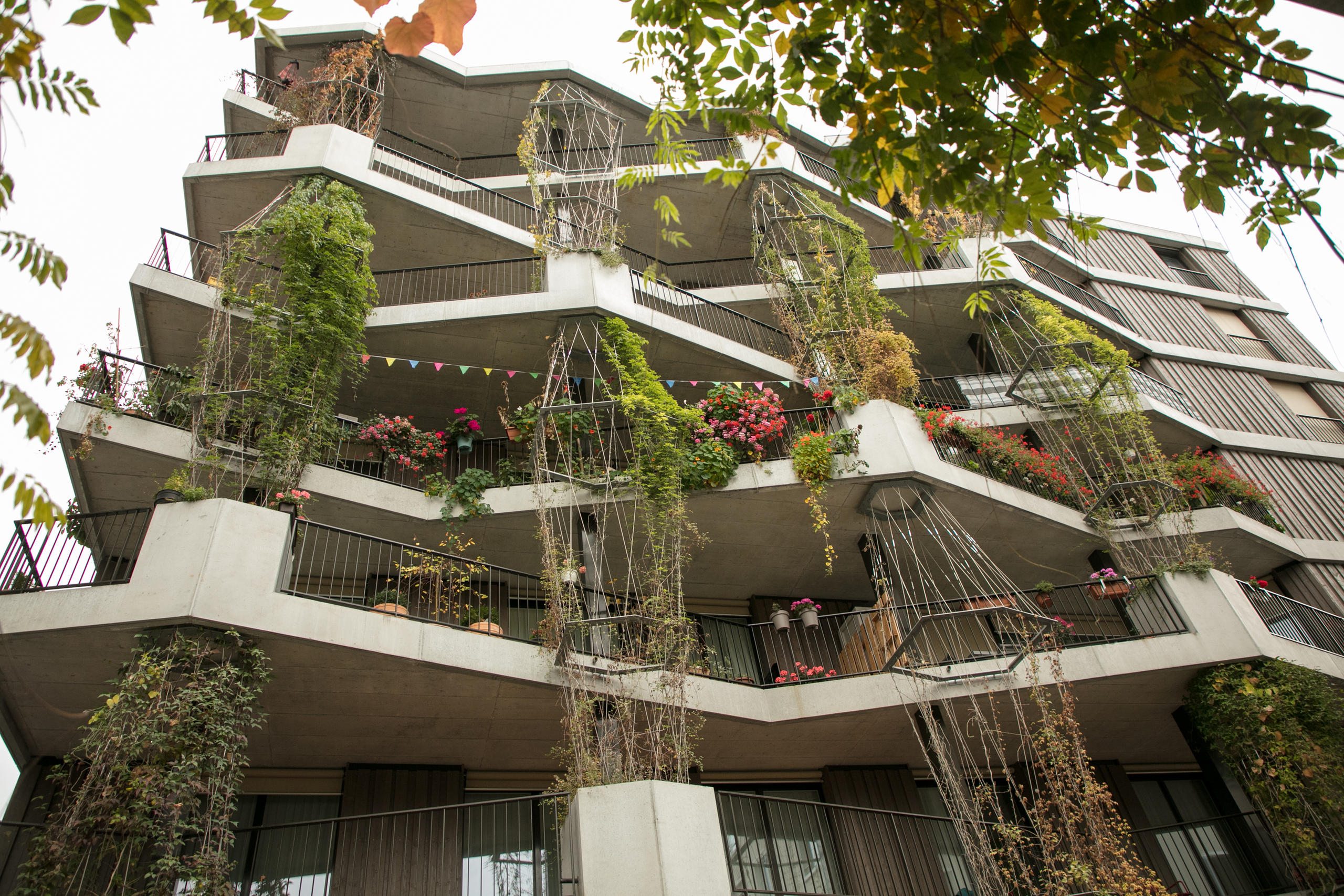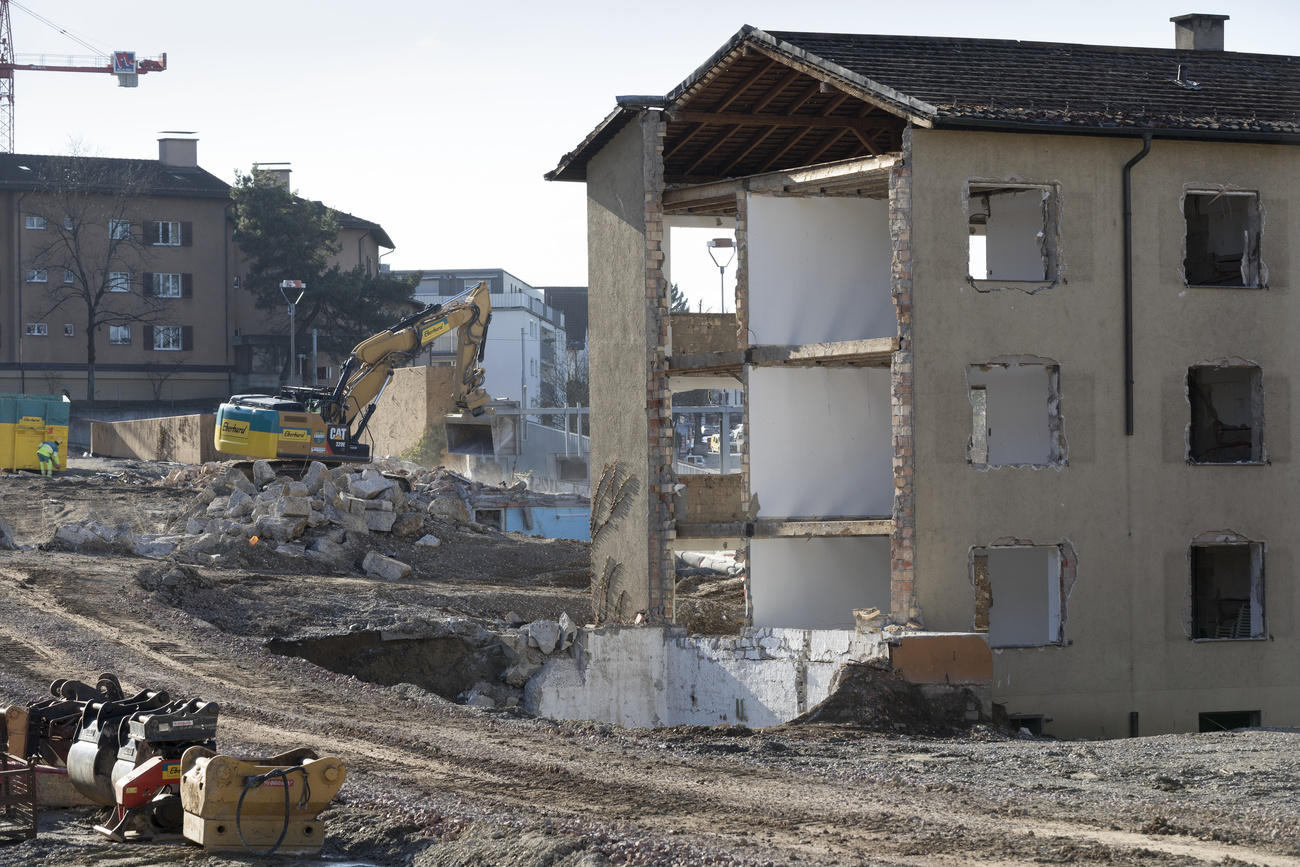‘No to an initiative that is dictatorial, costly and not focused on real needs’
The initiative on more social housing is not in keeping with real economic or environmental needs, says Fabio Regazzi. In the view of the Christian Democratic parliamentarian, it would mean burdensome costs for the middle class.
On February 9 we will be called upon to vote on the people’s initiative “More affordable housing”. Though its intentions are good, the solutions this initiative proposes are too rigid, and it is likely to have a boomerang effect on the housing market.

The first question we have to ask is if we in Switzerland need to set the quota for social housing at 10% of all housing built – an increase of three times what it is now.
A country based on a federalist structure like ours, which has to make room for varying situations, approaches and customs, has always had a hard time with quotas, percentages, maximum or minimum limits, imposed from above and made uniform for the whole country.
This 10% quota would inevitably mean government intervention on a large scale, and like every bureaucratic solution it would immediately start generating extra costs to the tune of CHF120 million ($124 million) a year. Since every government intervention has to be taxpayer-funded, the middle class would be footing the bill.
Negative effects on business and on energy upgrading
But there is more: the initiative introduces an automatic preference for cantons and municipalities as buyers where land is being sold belonging to the Swiss government or semi-state bodies. This is a measure remote from economic reality in this country.
If it was already law, it would have had a crippling effect on the redevelopment of the site of the railway works in the town of Bellinzona, imposing quotas and low-cost housing, instead of upgrading projects that meet the needs of the people but also of business.
swissinfo.ch publishes op-ed articles by contributors writing on a wide range of topics – Swiss issues or those that impact Switzerland. The selection of articles presents a diversity of opinions designed to enrich the debate on the issues discussed.
Finally, from an environmental point of view, the initiative discourages energy upgrading of existing housing stock. Energy renovation is a significant tool for bringing buildings up to newer standards and saving energy.
A crucial basis for the decision to renovate is the cost of investment compared to the potential savings and government grants available for energy-efficient renovations.
Renovation of this kind seems excluded by the initiative, as it will not allow any rent increase after a renovation. In many cases this will lead to less energy-efficient renovation, or building owners not applying for grants at all but passing the whole cost of renovation on to their tenants.
An alternative: the indirect counter-proposal
The Swiss government and both houses of parliament are recommending that the voters in all cantons reject the people’s initiative “More affordable housing”.
There is in fact an indirect counter-proposal now on the table, which will be implemented only if the initiative is voted down. This proposal would earmark CHF250 million over the next ten years to encourage the building of social housing without specifying minimum quotas, but responding to requests and decisions based on real need.
For all these reasons, I call upon Swiss voters to say NO to this initiativeExternal link, which is dictatorial, costly, and fails to match the real needs of our people.

More
‘Yes to an initiative promoting moderately-priced housing’
The views expressed in this article are solely those of the author, and do not necessarily reflect the views of swissinfo.ch.
Translated from Italian by Terence MacNamee/urs

In compliance with the JTI standards
More: SWI swissinfo.ch certified by the Journalism Trust Initiative













You can find an overview of ongoing debates with our journalists here . Please join us!
If you want to start a conversation about a topic raised in this article or want to report factual errors, email us at english@swissinfo.ch.